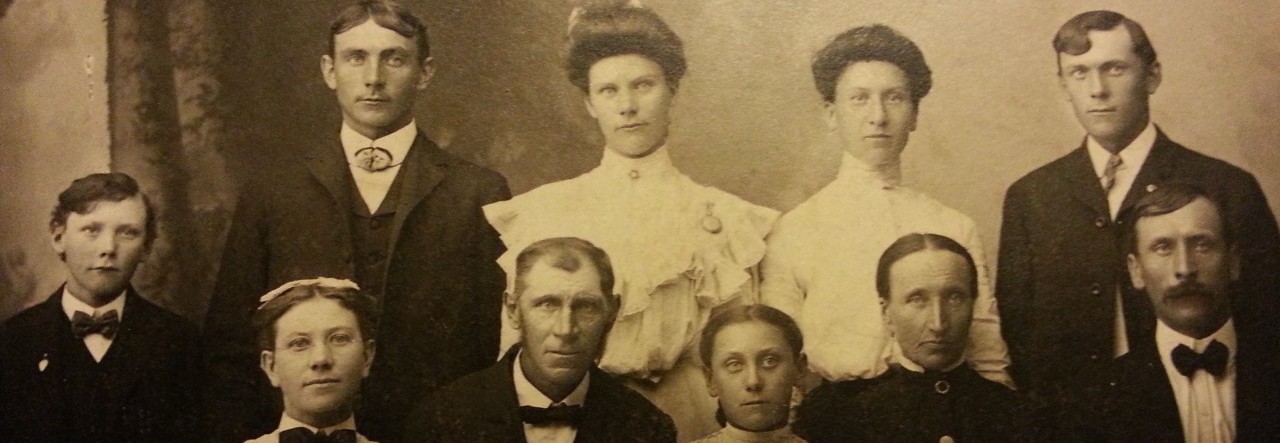![Zephyris at the English language Wikipedia [GFDL (http://www.gnu.org/copyleft/fdl.html)], from Wikimedia Commons](https://i0.wp.com/www.copperleafgenealogy.com/wp-content/uploads/2016/01/A-DNA_B-DNA_and_Z-DNA-e1454015169173.png?resize=500%2C326)
Zephyris at the English language Wikipedia [GFDL (http://www.gnu.org/copyleft/fdl.html)], from Wikimedia Commons
A few weeks ago, I gave a review on the National Genealogical Studies Continuing Genealogical Studies class called Genetic Genealogy, the Basics. I took this course in preparation for the Autosomal DNA course, which I had wanted to take since I saw it’s announcement. I have to say that the Basics course became invaluable when it came to the autosomal course! Having that basic understanding really did help me prepare for what I’d learn about autosomal DNA testing.
The Goals and Cost of the Course
The course’s author is Debbie Parker Wayne, CG, CGL. It’s for beginner-intermediate level students and has no prerequisites BUT in the first module, it does state that the course is designed for someone who has a basic understanding of DNA. They recommend the CGS Genetic Genealogy, the Basics course or reading books and blogs for getting that basic information.
The objectives of the course are roughly:
- learning the basics of autosomal DNA – how it recombines and is inherited
- learning how to read atDNA results and how to use a few of the tools out there to analyze your results (knowledge of Excel is helpful here)
- learning how to identify a likely genetic cousin and the common ancestor you share
- learning about the other tools and websites out there that can help a genealogist with the atDNA test results
There are seven modules for this course and all end in a quiz that you must pass in order to move on to the next module. The quizzes range from three to eleven questions, and you can take the quiz up to three times. The course should be completed within six months but there is a one-time three month extension available if needed.
This course is done completely online through the NGS Canvas System. There are two prices, which is usual for NGS: $60 for members and $85 for non-members.
Pros
- Because I have done atDNA testing through FamilyTreeDNA, I was able to do many of the analysis the course discusses while I was learning about the process.
- Although there is a section dedicated to other websites you could use to analyze your data, the course also goes over a simple Excel sheet to use for analysis. It also discusses how to do specific analysis like triangulation to confirm how you are related to a match.
- Learning how DNA recombines and is inherited makes the case for why you should get as many relatives tested as you can (and the further back in generations, the better).
- I really like how it emphasized using DNA research WITH your own thorough research.
- The course also discusses admixture results and how those can vary
Cons
- Like with the last course, I have an issue with the quizzes. Whatever you get incorrect, the answer is supplied once you hit the completed button. You can then retake the quiz with that answer in mind. Of course, people are taking this course to learn. I wouldn’t understand why someone would pay for the course and then lie through the tests – but it makes the quizzes feel irrelevant.
- This course does get technical. I haven’t had a biology class that discussed DNA since early college. It’s been a long time and although I know I’ve heard of some items before, I still needed to go outside the course for a better understanding. Having taken the Genetic Genealogy, the Basics course helped, but I still used the ISOGG Wiki quite often.
Overall Review
I’m sure you can tell by all the pros compared to the cons but I LOVED this course! I learned SO much from it and feel so much better prepared to go through my atDNA results and actually get somewhere with them. I am very excited to really get into the data now that I have a much better understanding of HOW to do it as well as WHAT to do with that data.
I will say that this course did take a lot more time for me to complete. Doing one module per day or every other day is a great way to get through the course if you can dedicate your time to that schedule. The cost did make me pause before taking the course, seeing how I felt about the last one, but I feel the cost this time is right for what you get from the course. I don’t think I can recommend it enough!



![User: (WT-shared) Jtesla16 at wts wikivoyage [CC BY-SA 3.0 (http://creativecommons.org/licenses/by-sa/3.0)], via Wikimedia Commons](https://i0.wp.com/www.copperleafgenealogy.com/wp-content/uploads/2016/02/Americas_Stonehenge-e1454681616695.jpg?resize=500%2C375)
![By Hogs555 (Own work) [CC BY-SA 3.0 (http://creativecommons.org/licenses/by-sa/3.0)], via Wikimedia Commons](https://i0.wp.com/www.copperleafgenealogy.com/wp-content/uploads/2016/01/Tenmile-e1454080150438.jpg?resize=500%2C314)
![Zephyris at the English language Wikipedia [GFDL (http://www.gnu.org/copyleft/fdl.html)], from Wikimedia Commons](https://i0.wp.com/www.copperleafgenealogy.com/wp-content/uploads/2016/01/A-DNA_B-DNA_and_Z-DNA-e1454015169173.png?resize=500%2C326)